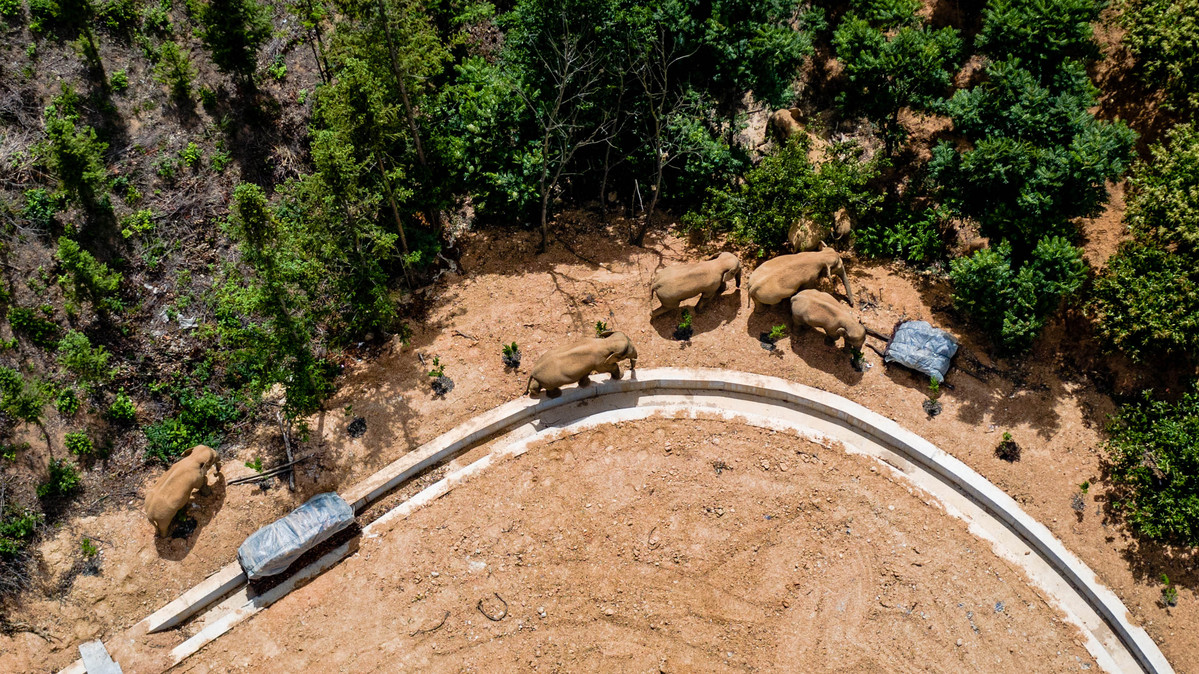Roaming elephants wreak havoc


Boundary lines
Despite "canteens" being set up, tasty food in local communities remains a big temptation for the elephants.
Chen Mingyong, a life sciences professor at Yunnan University who has been studying the wild elephants for decades, said, "About two-thirds of them are now living outside reserves because the increasing forest canopy density has resulted in food shortages."
He said that establishing boundary lines is the best solution to conflicts between the animals and humans. In addition to natural boundaries such as rivers and mountains, Chen had the idea of using iron bars to fence villages close to the elephants' habitat.
"Compared with limiting the elephants' activities, it's more practical to fence the villages," he said.
However, fencing is not cheap, and the elephants' movements are sometimes unpredictable, as evidenced by the herd that has recently headed north.
Chen said it is unusual for the elephants to leave their habitat and head north at this time of year, when food for the animals in mountains and forests is scarcer in areas at higher altitudes.
"Another possibility is that this herd lost its way during the march because its leader lacked experience," he said.
It is not known when the herd will stop heading north and move south to rainforests.
In Kunming, there is a street named "Xiangyan" (elephant eye), where foreign diplomats from Southeast Asian countries broke their journeys to send elephants as gifts to rulers during the Yuan Dynasty (1271-1368).
However, if those wild giants do appear again in this street, they will pose a considerable problem.























